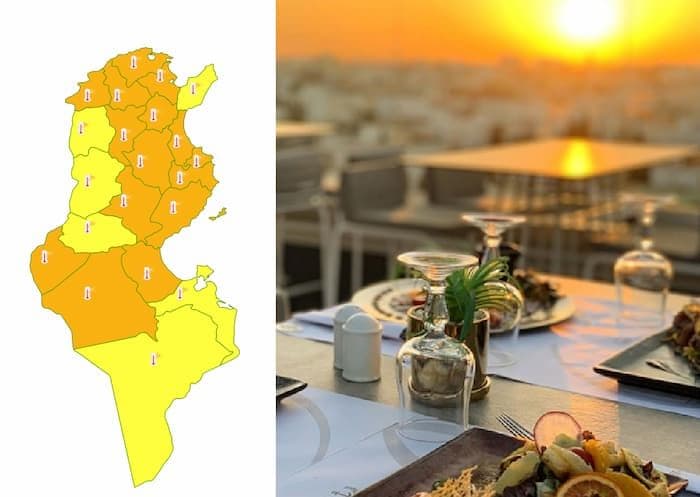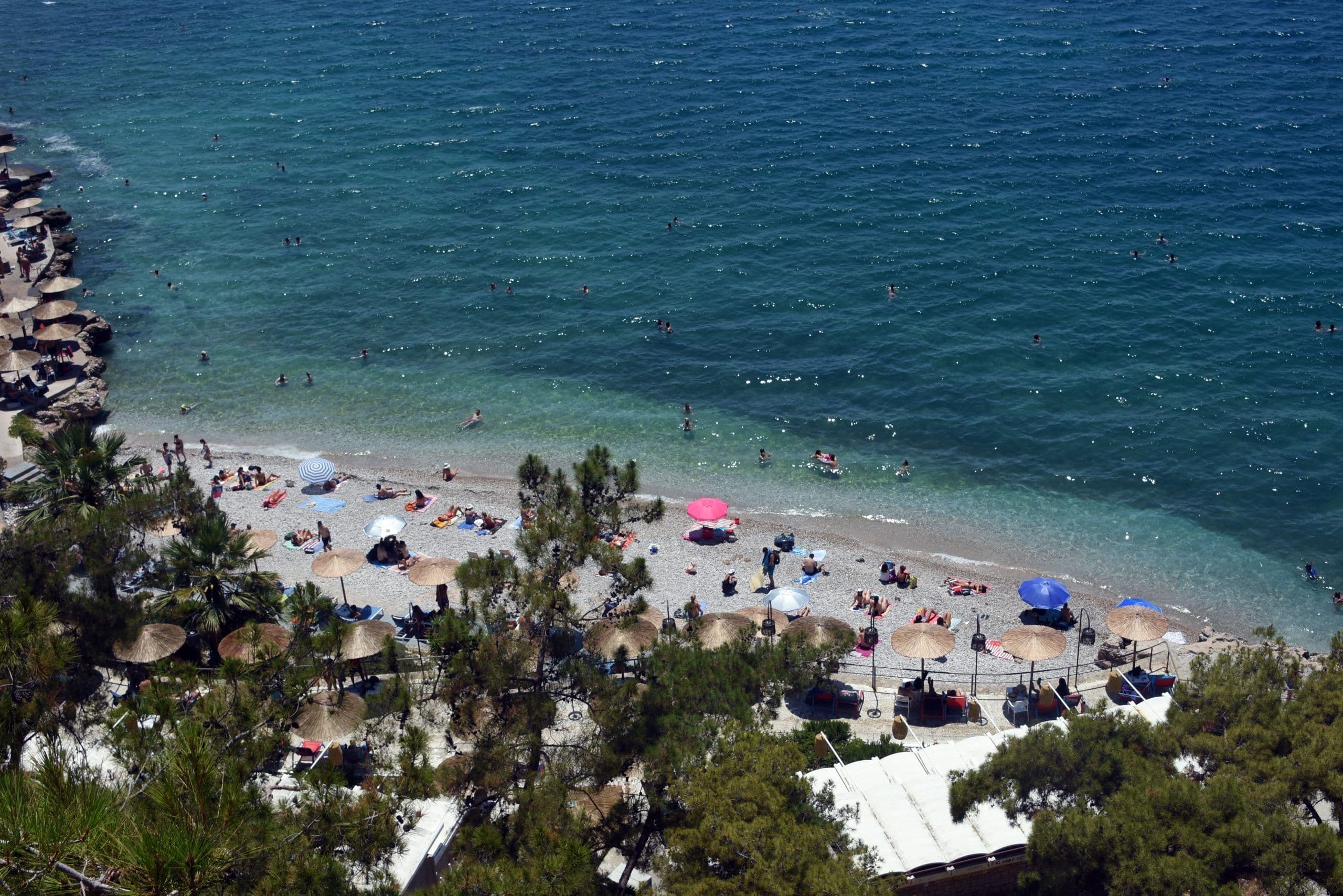Greece's Fiery Week: Mastering Survival Amidst a Historic 45°C Blast
A record 45°C heatwave engulfs Greece. Uncover advanced survival strategies, tackle relentless urban nights, and learn how communities can thrive amidst the summer's fiercest challenge.
The Scorching Forecast: When and Where It Hits Hardest
Greece is bracing for an unprecedented heatwave, dubbed καύσωνας διαρκείας (prolonged heatwave), setting the stage for a week of extreme temperatures. Starting this Sunday, the mercury is expected to climb steadily, with initial highs around 37-38°C in , and reaching 38-40°C in areas like , , , and . But this is merely the prelude. The true challenge arrives mid-week.
The peak of this historic event is anticipated for Tuesday and Wednesday, when temperatures could soar to a staggering 45°C. The , encompassing cities like , , and , is forecast to bear the brunt of this intensity. Similarly, , particularly around the , is also expected to hit 45°C. Other regions, including () and the (), aren't far behind, with predictions of 44°C. What makes this heatwave particularly concerning isn't just its peak, but its prolonged nature; meteorologists suggest it could persist for up to seven days, extending potentially until Friday. This isn't just another hot spell; it's shaping up to be the most significant and enduring heat event of the summer, demanding more than just casual preparation.
Beyond Hydration: Unconventional Heatwave Survival Hacks
When facing a prolonged heatwave of this magnitude, simply drinking water, while crucial, often isn't enough. We need to think smarter about staying cool, shifting from passive acceptance to active resilience. Consider pre-cooling your body; a lukewarm shower before bed, or even just soaking your feet in cool water, can significantly lower core temperature. Think about your clothing: loose-fitting, light-colored garments made of natural fibers like linen or cotton are non-negotiable, but also consider dampening a scarf or bandana and wearing it around your neck for continuous evaporative cooling. Food choices play a surprisingly large role. Opt for hydrating foods like watermelon, cucumber, and leafy greens. Avoid heavy, protein-rich meals that require more metabolic heat to digest. Instead of hot drinks, try herbal teas (like mint) cooled down, which can surprisingly make you feel cooler than ice-cold water by gently stimulating the body's cooling mechanisms. And don't forget your immediate environment: close curtains and blinds during the day to block sun, and only open windows at night if the outside air is cooler than inside. These aren't just tips; they're essential micro-strategies for active resilience against relentless heat.
Battling the Urban Night: Strategies for Relentless Heat
While daytime temperatures grab headlines, the relentless urban night is often where the true battle against heat fatigue is lost. Our forecast highlights this grim reality: feeling 32°C, 31°C, and / a suffocating 34°C even after sunset on Sunday, with urban centers potentially not dropping below 33°C all day. Such "tropical nights" prevent the body from cooling down, leading to sleep deprivation and increased health risks. To combat this, a strategic approach to your home is vital. During the day, keep windows and shutters tightly closed to trap cooler air inside. As soon as the sun dips and the outside temperature drops below your indoor temperature (which might be well past midnight), open everything up to create a cross-breeze. Using fans strategically, perhaps even with a bowl of ice in front of them, can create a localized cooling effect. Prioritize cooling your sleeping area; consider sleeping on the coolest part of your dwelling, perhaps even a tiled floor. Light bedding, a cool shower before bed, and avoiding electronics that emit heat are also critical for reclaiming some restorative rest in these challenging conditions.

Community Resilience: Looking Out for Each Other
In the face of such an extended and intense heatwave, individual preparedness is paramount, but true resilience blossoms within the community. This isn't just about personal comfort; it's a collective responsibility. Think about your neighbours, especially the elderly, young children, or those with pre-existing health conditions who might be more vulnerable to heat stress. A quick phone call or a doorstep check can make a world of difference. Are they hydrated? Do they have access to a cool space? Local municipalities often activate cooling centers in public buildings like air-conditioned halls or libraries during severe heatwaves. Knowing where these are and encouraging others to use them can be a lifeline. Consider forming informal neighbourhood "buddy systems" to ensure no one is left isolated to cope alone. Furthermore, remember our furry friends; pets are highly susceptible to heatstroke. Ensure they have ample water and shade, and avoid walking them during peak heat hours. A strong community fabric, woven with empathy and practical support, becomes our most potent defence when the mercury climbs this high.
The Long View: Adapting to Our Warming Summers
As braces for what’s being called the most significant heatwave of this summer, it serves as a stark reminder that such extreme events are becoming less of an anomaly and more of a recurring reality. This isn't just about surviving a single week; it's about fundamentally adapting to a future with increasingly warmer summers. The "long view" demands systemic changes, not just individual coping mechanisms. Urban planning, for instance, must prioritize green infrastructure – parks, tree-lined streets, and green roofs – which can significantly reduce urban heat island effects. Investing in sustainable building materials and designs that naturally cool structures can lessen reliance on energy-intensive air conditioning. On a broader scale, robust public health infrastructure, including early warning systems and accessible cooling centers, needs to be consistently maintained and expanded. This heatwave, while challenging, offers a critical opportunity for reflection: how can we, as a society, evolve our infrastructure, policies, and daily habits to not just endure, but thrive in, the warmer climate that is demonstrably upon us? The conversation needs to shift from reactive survival to proactive, long-term climate resilience.
Related Articles

The Unseen Scorch: How Greece's Summers Are Silently Reshaping Life

The Unseen Scorch: How Greece's Summers Are Silently Reshaping Life

Beyond the Mercury: Cultivating Resilience in a Warmer World

Beyond the Mercury: Cultivating Resilience in a Warmer World

From Scorched Earth to Sky's Fury: Greece's Dramatic Weather Metamorphosis

From Scorched Earth to Sky's Fury: Greece's Dramatic Weather Metamorphosis

The Summer Paradox: When Holiday Dreams Meet Scorching Reality
